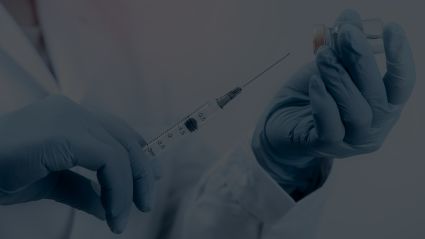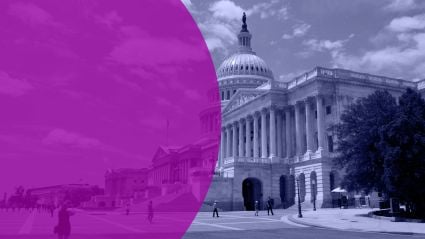Submitted electronically
| The Honorable Bernie Sanders Chairman HELP Committee United States Senate Washington, DC 20510 | The Honorable Bill Cassidy, MD Ranking Member HELP Committee United States Senate Washington, DC 20510 |
| The Honorable Robert Casey, Jr. HELP Committee United States Senate Washington, DC 20510 | The Honorable Mitt Romney HELP Committee United States Senate Washington, DC 20510 |
Dear Chairman Sanders, Ranking Member Cassidy, Senator Casey, and Senator Romney,
Thank you for the opportunity to provide comments on the discussion draft of the Pandemic and All-Hazards Preparedness Act (PAHPA) reauthorization, the first reauthorization since the COVID-19 global pandemic and mpox outbreak. We commend the bipartisan leadership of the Senate Health, Education, Labor, and Pensions (HELP) Committee to ensure the ongoing preparedness of the United States for all types of public health emergencies including pandemics and bioterrorist attacks. We look forward to collaborating with the Committee on policies that will improve and strengthen the nation’s biosecurity and preparedness infrastructure.
FasterCures and the Center for Public Health are centers of the Milken Institute, a nonprofit, nonpartisan think tank focused on accelerating measurable progress on the path to a meaningful life. As part of the Milken Institute, FasterCures and the Center for Public Health work to catalyze practical, scalable solutions to address the challenges of our biomedical and public health systems, respectively. Guided by a conviction that the best ideas, under-resourced, cannot succeed, we conduct research and analysis and convene top experts, innovators, and influencers from different backgrounds and competing viewpoints. We leverage this expertise and insight to construct programs and policy initiatives.
In this letter, we offer our comments on Title II provisions of the discussion draft, which reflect the areas that align with our research and input collected through the course of multiple convenings on related topics. In addition, we highlight additional areas for consideration in future iterations of the reauthorization bill.
Title II—Federal Planning and Coordination
Section 202. Strategic National Stockpile and material threats
We are pleased to see that the reauthorization of PAHPA addresses gaps in medical countermeasure development and deployment through policies that strengthen federal planning and coordination. We support Section 202 provisions but would emphasize the need for enacting policies that sustain long-term opportunities and commitments for public-private partnerships (PPPs) specific to the Strategic National Stockpile (SNS) to enhance the coordination of the production, distribution, and delivery of critical medicine and supplies.
Biomedical manufacturers and health supply-chain distributors have crucial expertise and resources that should be leveraged during emergencies while supporting public health goals broadly. These stakeholders must be regarded as essential partners and therefore be included in planning considerations for appropriate distribution capabilities, capacity, and utilization for the SNS to understand what is readily available in the market.
To further equip the SNS, we recommend the inclusion of HR 405, the Essential Medicines Strategic Stockpile Act, as part of the PAHPA reauthorization to require that the US Department of Health and Human Services (HHS) establish a list of 50 generic drugs that are essential to a public health emergency and subsequent response. In addition, Congress should create a mechanism that enables enhanced visibility and early notification of potential drug shortages, particularly around essential medicines.
Section 204. Public Health Emergency Medical Countermeasures Enterprise
The Milken Institute is committed to ensuring the positive lessons and developments from our collective experience during the COVID-19 pandemic are not lost. To that end, we support Section 204 provisions calling for information sharing on recommendations made and strategies developed to advance medical countermeasures with relevant stakeholders including industry, state, local, and tribal public health departments.
Under this provision, the Assistant Secretary for Preparedness and Response (ASPR) and the director of the Office of Pandemic Preparedness and Response Policy should work with the HHS Secretary with input from relevant stakeholders to evaluate the ongoing role, scope, and impact of the Supply Chain Control Tower (SCCT). During the COVID-19 pandemic, ASPR launched the SCCT, a public-private partnership that enabled a consolidated approach to data-sharing to monitor health-care supply-chain stability. Leveraging data from manufacturers and distributors throughout the response, the SCCT created supply-chain visibility, provided insights for demand forecasting, and informed responses to product shortages. Ongoing program evaluation is imperative to ensure successful implementation of SCCT in future response efforts beyond COVID-19.
Section 205. Pilot Program for public health data availability
The Milken Institute strongly supports policies to modernize our nation’s health-data infrastructure, moving us towards interoperable public health systems that share health information appropriately in the right format. We need sustainable systems that can receive timely, exchangeable data from various sources, like laboratories and hospitals, and exchange these data with HHS in an efficient manner in order to detect disease outbreaks and emerging threats at the earliest stage possible.
With this in mind, we support Section 205, which calls for the establishment of a public health situational awareness pilot program. We support establishing and maintaining an open-source, public-facing, and publicly available website to provide deidentified, aggregated data on potentially catastrophic disease outbreaks with enhanced data collection under the guidance of the HHS Secretary and a National Public Health Data Board. In addition, we urge explicit consideration be given to how this data can be shared and leveraged globally to generate early warning signals of emerging threats on a global scale.
Additional Considerations
Enact the Pioneering Antimicrobial Subscriptions to End Upsurging Resistance (PASTEUR) Act
In the reauthorization of PAHPA, we urge you to enact the PASTEUR Act, which creates a new mechanism for paying for antibiotics that would help revitalize the antibiotic development pipeline and bolster our nation’s ability to prepare for and respond to pandemics, natural disasters, and other biological threats.
Antimicrobial resistance (AMR) is a significant public health threat often described as a silent pandemic. Many experts believe antibiotic-resistant infections threaten our society more than the COVID-19 pandemic. Over three million people in the United States suffer from antibiotic-resistant infections every year, resulting in at least 50,000 deaths. Globally, AMR is a leading cause of death that has been connected to nearly five million deaths in 2019. Without any concerted action, it is estimated that the global death toll from AMR could reach as high as 10 million by 2050. The COVID-19 pandemic has only worsened AMR, with rates of drug-resistant hospital-onset infections and deaths jumping at least 15 percent in the first year of the pandemic alone.
Despite the substantial need, antibiotics development has received little investment. The development of antibiotics, like all medicines, takes years and significant resources. Yet, when new antibiotics reach the market, they face a far more uncertain market than other medicines due to low prescription volumes and prices. This combination makes it difficult for an antibiotics developer to sustain the manufacturing and operational costs necessary to keep the drug on the market. Our research has found that the PASTEUR Act, which outlines a new payment mechanism for antibiotics that delinks payment from volumes, would open the door to new, much-needed investment in this sector because it provides developers with the possibility of a predictable revenue stream. In addition, it should be noted that most R&D in antibiotics today is conducted by small, single-product companies, not large pharmaceutical companies. With every month and year that passes when we do not solve the AMR crisis, these small companies will shutter their doors, and expertise will continue to dwindle as scientists and researchers leave the field.
Conclusion
Thank you for the opportunity to provide comments on the discussion draft for the Pandemic and All-Hazards Preparedness Act reauthorization. The Milken Institute welcomes the opportunity to provide additional detail on the information above and serve as a resource as you continue to refine the legislation.
Sincerely,
Esther Krofah
Executive Vice President of Health
Milken Institute










